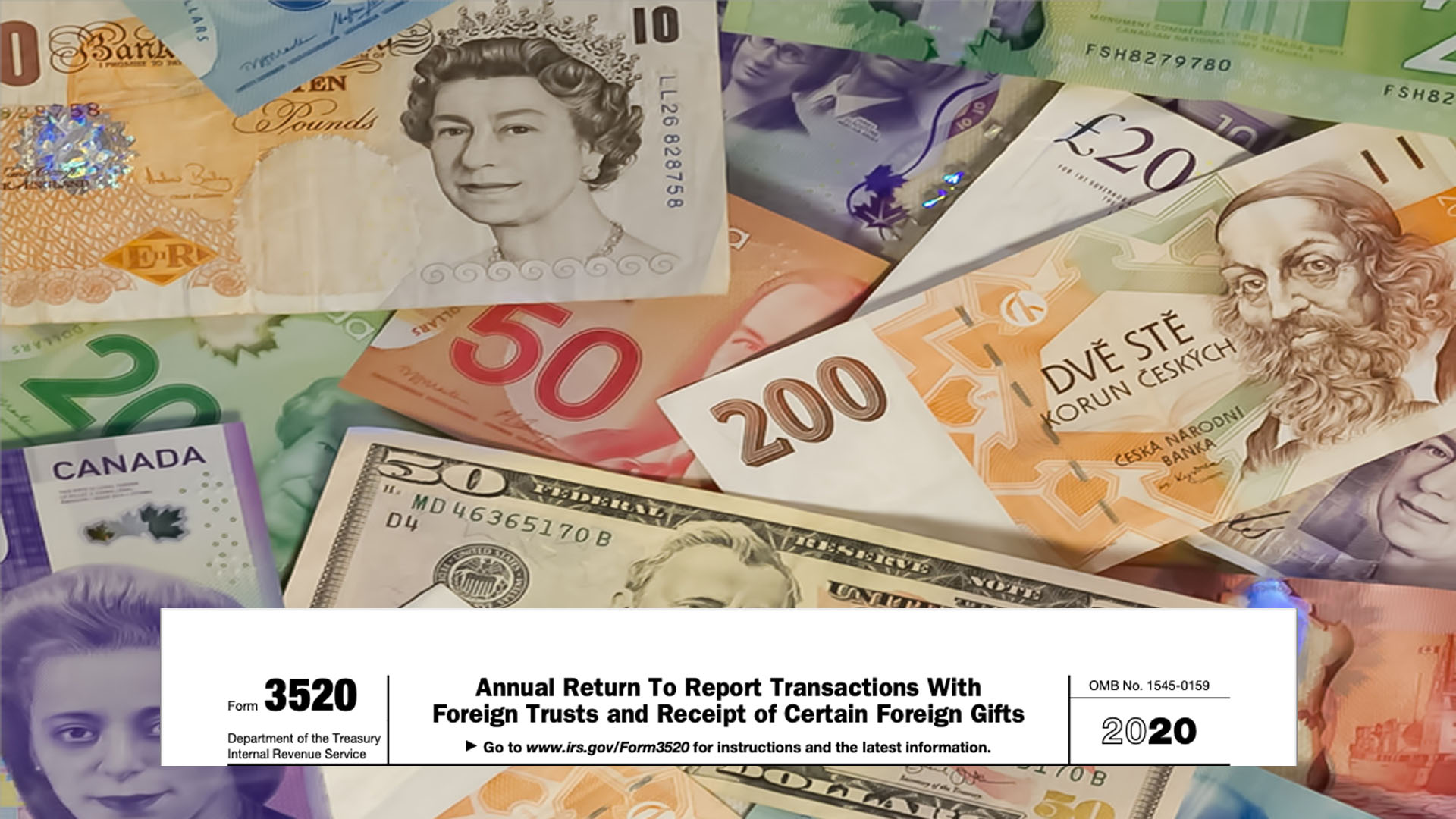The ultimate guide to report a foreign gift and stay compliant
Comprehending the Types of International Gifts: How to Properly Report Them
Recognizing foreign gifts is necessary for companies going across intricate reporting demands (report a foreign gift). These gifts can differ significantly, coming under financial and non-monetary groups. Each type provides one-of-a-kind challenges in evaluation and compliance. Organizations must recognize the legal and ethical effects entailed. Efficient monitoring and reporting require clear guidelines and regular training. The concern remains: exactly how can companies assure they fulfill these responsibilities while maintaining transparency and responsibility?
Meaning and Summary of Foreign Presents
Foreign gifts are advantages or items received from international entities, which can consist of organizations, people, or federal governments. These presents might take various kinds, consisting of concrete products, services, or other types of assistance that hold worth. The importance of foreign presents often depends on their possible to influence partnerships in between people, nations, or companies. They can be a method of diplomacy, showing a good reputation or promoting cooperation. Nonetheless, the approval of such presents increases ethical and legal factors to consider, specifically relating to openness and potential problems of passion. Receivers need to browse complicated guidelines that govern the reporting and acceptance of international presents, guaranteeing conformity with both residential and international legislations. Understanding the definition and implications of foreign gifts is essential for individuals and organizations to maintain stability and responsibility in their transactions with foreign entities. This fundamental understanding sets the stage for a deeper expedition of the various kinds of international gifts and their reporting demands.
Sorts Of Foreign Presents: Monetary vs. Non-Monetary
Presents from abroad can be classified into 2 primary types: non-monetary and monetary. Monetary gifts incorporate direct monetary contributions, such as cash money or checks, which can significantly affect the recipient's financial standing. These presents are typically straightforward to value and report, as they entail clear monetary quantities.
Non-monetary presents, on the other hand, consist of substantial things such as garments, art work, or mementos, in addition to abstract offerings like services or experiences. While these presents might not have a straight financial effect, they can hold substantial nostalgic or cultural worth. Valuing non-monetary gifts can be a lot more complex, as it commonly requires reviewing the product's market well worth or relevance to the recipient. Understanding these two classifications is important for accurate reporting, making sure conformity with regulations pertaining to foreign presents and preserving transparency in financial dealings.
Honest and legal Effects of Receiving Foreign Gifts
While the allure of receiving presents from abroad may appear innocuous, the ethical and legal effects related to such transactions can be substantial. Recipients need to browse complicated guidelines that govern the acceptance of international gifts, as failing to do so might lead to lawful repercussions, including sanctions or fines. Fairly, the approval of presents from foreign entities can result in understandings of preference or problems of passion, especially for people ready of power or public count on. Such assumptions can undermine the honesty of organizations and deteriorate public confidence. Furthermore, the potential for foreign impact elevates worries concerning nationwide safety and the stability of decision-making procedures. As an outcome, people have to thoroughly take into consideration not only the legitimacy of approving foreign gifts yet additionally the more comprehensive implications on their reputations and the establishments they represent. Inevitably, thoughtful deliberation is more essential to keep both lawful conformity and honest criteria.
Reporting Requirements for Foreign Presents

Comprehending the coverage demands connected with getting foreign gifts is necessary for individuals in different fields, particularly those in government and public service. These needs are created to advertise openness and avoid disputes of interest. Normally, recipients have to report any type of foreign presents surpassing a defined financial limit, which differs by jurisdiction.
Documentation is crucial, as recipients must provide information such as the value, nature, and source of the present, along with the date it was obtained. Several organizations require receivers to submit their reports within an assigned timeframe, usually within 30 days of invoice.

Failure to comply with these reporting obligations can result in severe effects, including legal fines and damages to one's professional credibility. As an outcome, comprehending the certain guidelines applicable to one's setting and territory is vital for making certain compliance and keeping honest standards in civil service.

Ideal Practices for Managing International Gifts in Organizations
To properly handle international presents within companies, establishing clear policies and treatments is crucial. Organizations must begin by defining what makes up an international gift and recognizing the relevant reporting requirements to guarantee conformity with lawful commitments. Normal training sessions can improve team understanding of these policies, advertising a society of transparency and persistance.
Additionally, organizations ought to execute a central radar to record all international gifts obtained, consisting of information such as the resource, value, and objective. report a foreign gift. This system needs to promote routine reviews and audits to evaluate compliance with her comment is here well-known plans

Frequently Asked Concerns
Can Foreign Present Impact Company Choices or Relationships?
International gifts can especially affect organization choices and connections, commonly creating perceived obligations or predispositions. Such influences might affect negotiations, partnerships, and overall business principles, potentially leading to conflicts of rate of interest or reputational dangers.
What Are the Penalties for Failing to Report Foreign Present?
Falling short to report international presents can lead to considerable fines, consisting of penalties, disciplinary action, or legal repercussions. Noncompliance weakens openness and could damage credibilities, emphasizing the importance of adhering to reporting guidelines.
Exist Certain Countries With Stricter Gift Regulations?
Particular countries, like China and Saudi Arabia, impose stricter regulations on presents, reflecting social norms and governmental oversight. These guidelines may affect international communications and require careful factor to consider by people taking part in cross-border partnerships.
How Can Organizations Educate Worker Regarding Foreign Gift Plans?
Organizations can enlighten staff members about international gift plans via regular training sessions, extensive handbooks, and clear interaction channels. Involving workshops and real-life scenarios assist enhance understanding, making sure conformity and recognition of possible moral predicaments.
What Documentation Is Essential for Foreign Present Coverage?
Documents for international present reporting typically includes a detailed summary of the gift, its worth, the contributor's info, objective of the present, and any appropriate plans or laws controling the approval and coverage Go Here of such gifts.
Foreign presents are things or advantages received from foreign entities, which can include federal governments, individuals, or companies. Recipients should browse intricate laws that regulate the coverage and approval of foreign gifts, ensuring conformity with both worldwide and domestic laws. Comprehending the meaning and implications of foreign gifts is important for organizations and individuals to keep integrity and accountability in their ventures with international entities. Receivers have to navigate complex policies that control the approval of international presents, as failing to do so might result in lawful repercussions, consisting of fines or permissions. Stopping working to report foreign gifts can result in significant charges, including fines, disciplinary action, or legal effects.